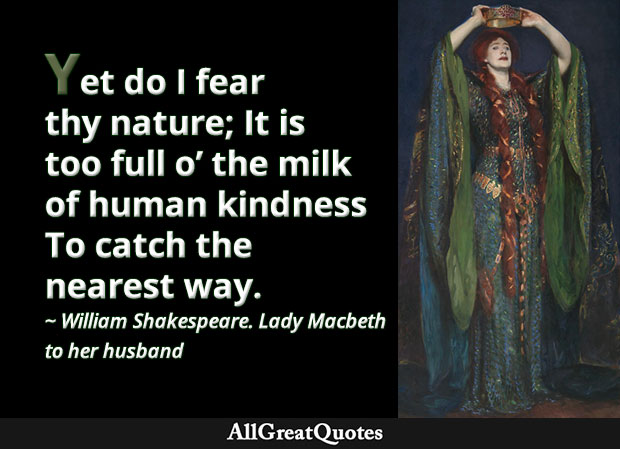Cannot be ill, cannot be good: if ill,
Why hath it given me earnest of success,
Commencing in a truth? I am thane of Cawdor:
If good, why do I yield to that suggestion
Whose horrid image doth unfix my hair
And make my seated heart knock at my ribs,
Against the use of nature? Present fears
Are less than horrible imaginings:
My thought, whose murder yet is but fantastical,
Shakes so my single state of man that function
Is smother’d in surmise, and nothing is
But what is not.
– William Shakespeare
Macbeth, Act 1, Scene 3. In Macbeth’s first soliloquy he tries to work out the implications of the Witches’ prophecy that he will be king. We get an insight into his state of mind as his ambition for power is triggered by the prophecy. For the first time he gives voice to the thought of murdering King Duncan. The thought terrifies him and leaves him confused. If what the Witches told him is good, he wonders why he is entertaining horrible thoughts of murder. But he reasons that it cannot be evil, since the Witches’ forecast that he would be Thane of Cawdor turned out to be right. Macbeth is so consumed with his own ambitious fantasizing, that he becomes detached from reality. He struggles with his conscience over whether to commit murder. But he can only think of “what is not” – his fantasy of being king. The final sentence suggests too that what seems to be real is actually not, ironically like Macbeth’s supposed loyalty to King Duncan, whom he kills. The murder of Duncan is foreshadowed in the passage.


